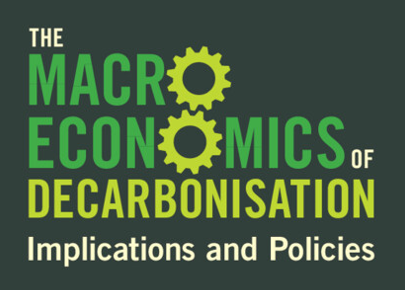
Scientific evidence is clear: human activities have released enough greenhouse gases (GHG) into the atmosphere to have already altered the climate, with already strong effects on ecosystems, societies and economies. On current emissions paths, climate change is set to become dramatically worse. To limit global warming, and hence avoid the worst-case scenarios predicted by climate science, the world economy must rapidly reduce its GHG emissions and reach climate neutrality within the next three decades.
This will not be an easy journey. Shifting away from carbon-intensive production will require a historic transformation of the structure of our economies. Capital and labour will have to be reallocated from brown to green activities. Many needed technologies are still under development and cannot yet be deployed. Some of the major changes that will need to take place are already clear: electricity production will need to be fully decarbonised, most economic activities will need to be electrified and energy will need to be used with much higher efficiency. But these changes will have major ramifications throughout the economy, which are less well understood.
In particular, as the time horizon of these adjustments has shrunk significantly, achieving climate neutrality by mid-century will have significant macroeconomic implications that need to be understood and adequately managed by policymakers.
For instance, transforming the energy system from brown to green requires major upfront investments in infrastructure such as solar panels and wind parks, the electricity grid, storage facilities and new heating and cooling systems. The green energy system will likely be more capital intensive than the brown energy system, and the more rapid the transition is happening the faster brown assets, that are still functioning, will have to be depreciated. A macroeconomically relevant reduction of the capital stock will be combined with a major increase in investments into green, amounting to as much as 2 per cent of GDP per year over decades.
The purpose of our book is to advance the understanding on the macroeconomic fundamentals of decarbonisation. It identifies the major economic transformations and roadblocks requiring policy intervention. It develops a macroeconomic policy agenda for decarbonisation that would achieve the climate goals of the international community. While the book takes a global prospect on the issue, it provides specific insights into the European Green Deal, as one of the most ambitious decarbonisation agendas in the world.
Getting global decarbonisation right means that the macroeconomic implications of the process have to be understood and taken into account when designing climate policies. A costly and inefficiently done decarbonisation strategy will not be economically and socially viable while a wrong set of macroeconomic and structural policies may raise the cost of decarbonisation to unacceptable levels. The book seeks to shed light at this crucial intersection, reviewing systematically the existing evidence and reflecting on the key policy trade-offs and potential ways forward.
We hope that this book will help the present and next generation of teachers, students, policymakers and citizens with an interest in economic and climate issues to develop a clearer understanding of the macroeconomic implications of decarbonisation, so that they may be better able to contribute to the resolution of the complex issues associated with this aspect of the historical climate challenge we all face.
Latest Comments
Have your say!